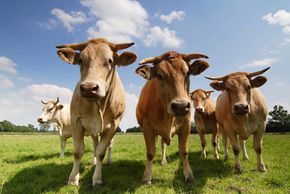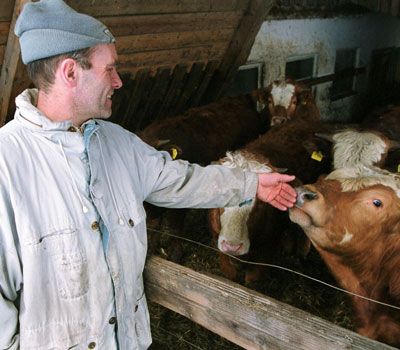
Vegetarianism seems more popular than ever. Veggie burgers grace menus and barbecues across the country. Children and teenagers declare themselves vegetarian to assert dietary independence from their parents. Vegetarian cosmetics and cruelty-free clothes fill corner drugstores and high-end shops. But although vegetarianism is trendy, sometimes rebellious and decidedly modern, it's actually one of the earliest diets. Some cultures have subsisted without meat for millennia. Socrates, Plato, Leonardo da Vinci, Charles Darwin and Thomas Edison were all vegetarians [source: VegNews].
The vegetarian diet is straightforward enough: Vegetarians do not eat meat. Some people who avoid beef and pork but still eat poultry or fish mistakenly consider themselves vegetarians. Although vegetarianism has varying degrees, the diet's core principle is abstention from all meat. Most vegetarians are lacto-ovo-vegetarians -- they do not eat meat but they allow dairy products and eggs. Lacto-vegetarians allow dairy, and ovo-vegetarians allow eggs. Vegans avoid all animal products -- meat, dairy, eggs, leather, wool, silk and even honey.
Advertisement
There is, however, plenty for vegetarians to eat. Lacto-ovo vegetarians eat fruit, vegetables, grains, nuts, seeds, legumes, dairy and eggs. They eat meat substitutes like soybean-based tofu and tempeh, and seitan, a wheat protein. Ethnic cooking's growing popularity has also opened up a world of new vegetarian foods to vegetarians and meat-eaters alike. Middle Eastern, North African, Indian and Asian foods are often vegetarian or easily can be made so.
In this article, we'll learn about why people become vegetarians, the degrees of vegetarianism and how the movement has evolved.
Advertisement


